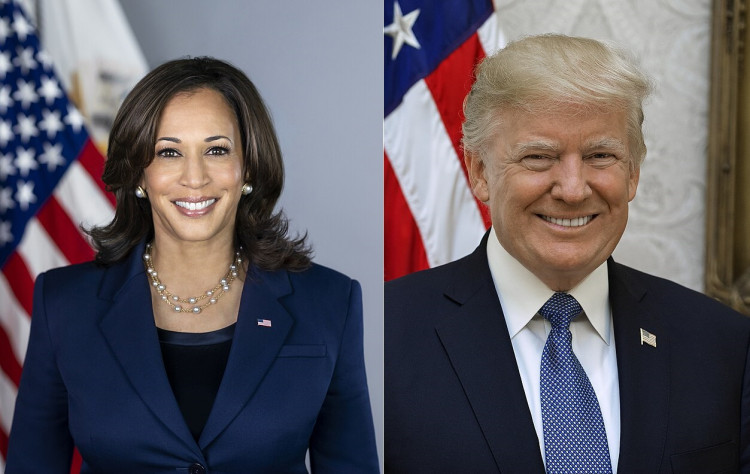As the September 10 debate between Vice President Kamala Harris and former President Donald Trump approaches, a contentious dispute over debate format rules has emerged, adding another layer of complexity to the high-stakes event. The crux of the disagreement centers on whether microphones should be muted when a candidate is not speaking, a condition both Biden and Trump accepted for their June debate hosted by CNN.
The debate, scheduled to be held in Philadelphia and aired on ABC, has become a battleground for both campaigns as they argue over the technicalities of the debate format. The dispute began when Trump raised concerns on his Truth Social platform, criticizing the network and questioning the value of participating. "Why would I do the Debate against Kamala Harris on that network?" Trump wrote, expressing dissatisfaction with ABC's coverage and hinting at the possibility of withdrawing from the debate altogether.
The Harris campaign has been vocal in its opposition to the muted microphone format. Brian Fallon, a spokesman for Harris, accused Trump's team of attempting to manipulate the debate rules to protect their candidate. "Trump's handlers prefer the muted microphone because they don't think their candidate can act presidential for 90 minutes on his own," Fallon asserted. He added, "Harris is ready to deal with Trump's constant lies and interruptions in real time."
In response, Trump's spokesman, Jason Miller, defended the previous agreement and accused the Harris campaign of seeking unfair advantages. "We accepted the ABC debate under the exact same terms as the CNN debate," Miller said. "The Harris camp, after having already agreed to the CNN rules, asked for a seated debate, with notes, and opening statements." Miller's statement was aimed at countering claims from the Harris camp that it sought modifications to the debate format.
Trump himself has expressed a preference for open microphones, countering his campaign's official stance. "I'd rather have it probably on," Trump said in Washington, indicating his discomfort with the previous debate's muted mic policy. His comments suggest a potential internal conflict within his campaign over the debate's format.
Complicating the situation further, debates this year are being organized on an ad hoc basis by host networks rather than through the bipartisan Commission on Presidential Debates. This shift has led to increased maneuvering and disagreements over debate rules. During the 2020 debates, the Commission implemented microphone muting to prevent interruptions, a move that was praised for producing more substantive discussions.
The Harris campaign has maintained that the microphone issue is a settled matter, following Trump's contradictory statements. Michael Tyler, a senior Harris campaign official, suggested that Trump's comments had resolved the debate over microphone rules. "Trump doesn't care - doesn't matter to him whether or not the mics are hot," Tyler said, noting that the Harris team is prepared for a debate with live microphones.
The debate is expected to be a critical moment in the campaign, given the high stakes for both candidates. Harris is preparing with focused debate sessions, including a visit to Georgia, while Trump has enlisted former Democratic rival Tulsi Gabbard for debate prep, signaling a strategic approach to his preparation.
Trump's reluctance to engage deeply in debate preparation contrasts with his campaign's official position. "I'm not spending a lot of time on it," Trump admitted, emphasizing his belief that his extensive experience has already prepared him for the debate. His approach reflects his broader strategy of relying on his extensive public experience rather than intensive rehearsal.






